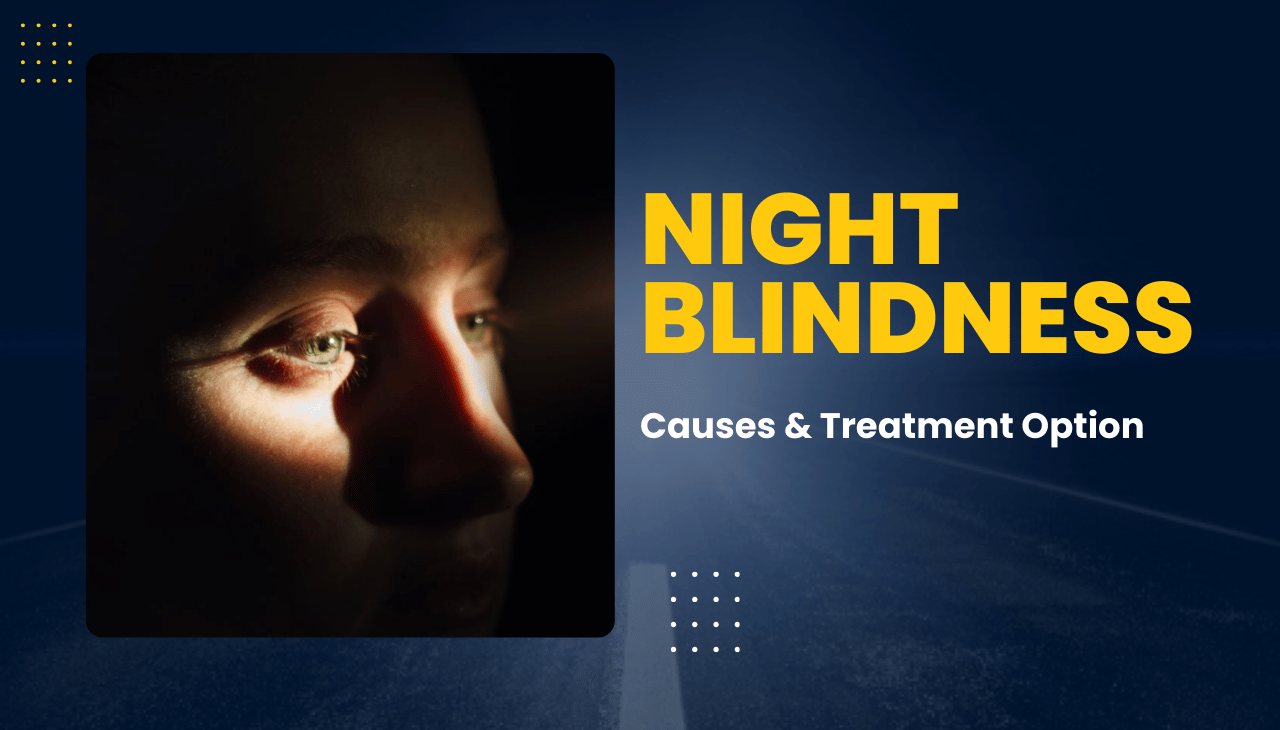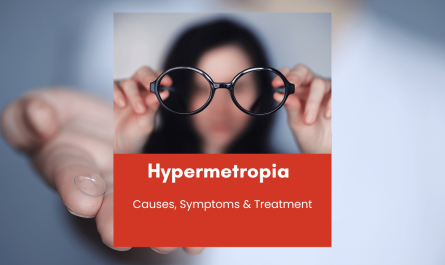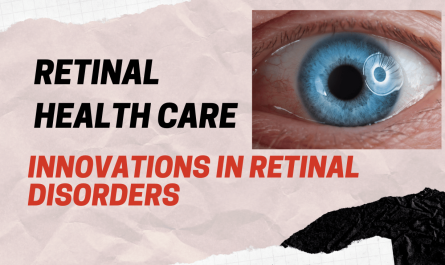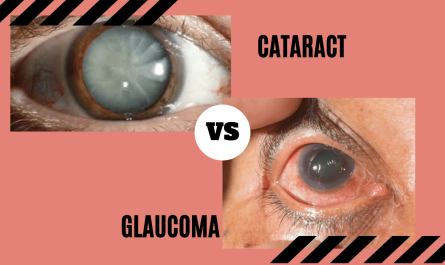Introduction
Have you ever struggled to see clearly in dim lighting or at night? If so, you may be experiencing night blindness, also known as nyctalopia. This condition makes it difficult to see in low-light environments, affecting daily activities such as driving at night or moving safely in dark places. Understanding night blindness is crucial because it can indicate an underlying eye condition that needs medical attention. In this blog, we will explore what night blindness is, its causes, symptoms, treatment options, and preventive measures.
What is Night Blindness?
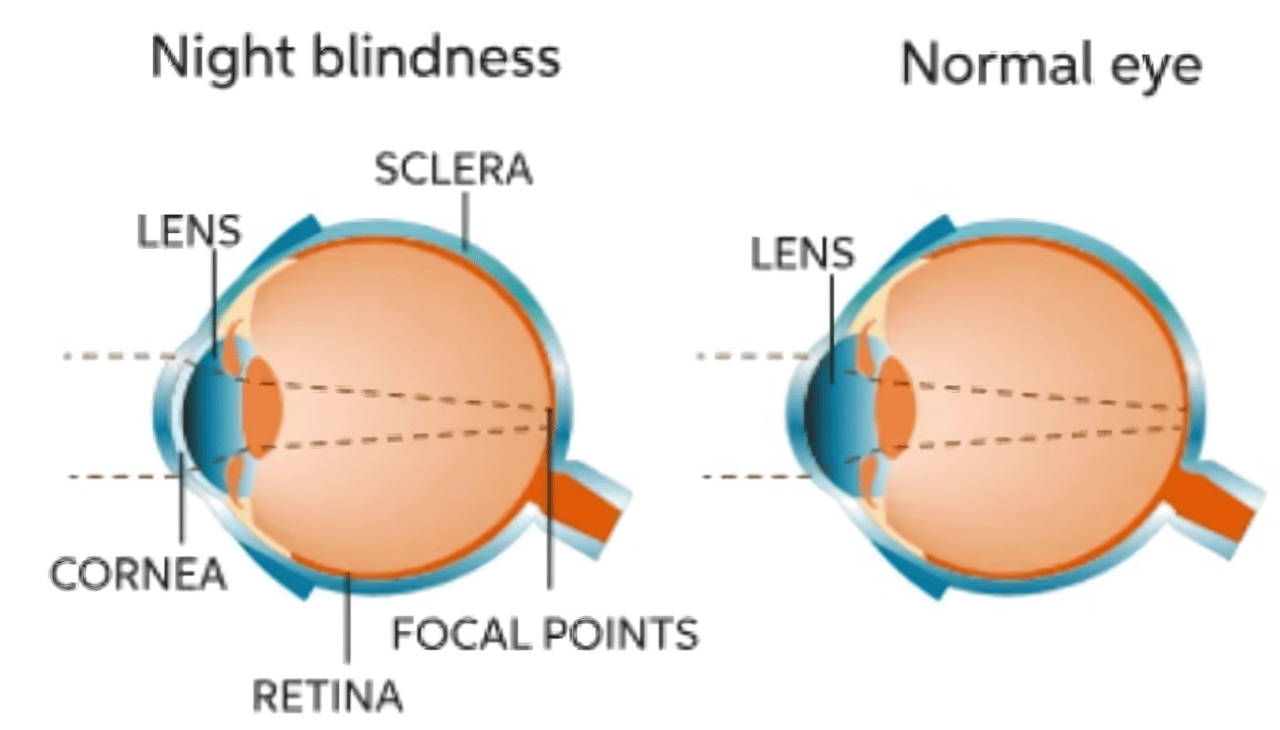
Night blindness is not a disease in itself but a symptom of various eye conditions. It refers to the difficulty or inability to see in low-light or dark environments. People with night blindness may find it challenging to adjust from bright to dim light or see objects in dark places. The retina, the part of the eye responsible for detecting light, plays a significant role in night vision. Any damage or deficiency affecting the retina can result in night blindness.
Causes and Symptoms
Several factors can contribute to night blindness. Some of the most common causes include:
1. Vitamin A Deficiency
Vitamin A is essential for good vision, especially in low-light conditions. A deficiency can lead to night blindness and, if left untreated, may cause permanent vision impairment.
2. Cataracts
Cataracts cause clouding of the eye’s natural lens, leading to blurry vision and increased difficulty seeing at night.
3. Retinitis Pigmentosa
This genetic disorder affects the retina’s light-sensitive cells, leading to gradual vision loss and, in some cases, complete blindness.
4. Diabetic Retinopathy
People with diabetes are at risk of developing diabetic retinopathy, which damages the retina and impacts night vision.
5. Glaucoma and Its Treatments
Glaucoma damages the optic nerve, affecting vision. Some glaucoma medications can also reduce pupil dilation, making it harder to see in dim light.
6. Nearsightedness (Myopia)
Individuals with severe myopia may experience difficulty seeing at night due to light scatter and improper focusing.
Symptoms

- Difficulty seeing in dimly lit areas
- Trouble driving at night due to poor visibility
- Slow adjustment from bright to dark places
- Increased sensitivity to glare
- Blurred vision in low light
How to Treat
The treatment for night blindness depends on its underlying cause. Here are some of the best approaches:
1. Increase Vitamin A Intake
If a vitamin A deficiency is the cause, consuming foods rich in vitamin A, such as carrots, spinach, sweet potatoes, and dairy products, can improve vision.
2. Cataract Surgery
For those with cataracts, surgery to replace the cloudy lens with an artificial one can restore vision and eliminate night blindness.
3. Managing Diabetes
Diabetics should maintain healthy blood sugar levels through proper diet, exercise, and medication to prevent diabetic retinopathy.
4. Glaucoma Treatment
Glaucoma requires timely medical intervention with medications or surgery to prevent vision loss.
5. Corrective Lenses or LASIK Surgery
For those with severe myopia, wearing prescription glasses, contact lenses, or opting for LASIK surgery can significantly improve night vision.
What is the Outlook ?
The outlook for night blindness largely depends on its underlying cause. If it is due to vitamin A deficiency or cataracts, proper treatment can significantly improve vision. However, if blindness is caused by genetic conditions like retinitis pigmentosa, there may be no cure, but early diagnosis and management can help slow down the progression of vision loss. Regular eye check-ups and timely medical interventions can enhance the quality of life for individuals dealing with it.
How Can You Prevent it?
While some causes of night blindness, like genetic disorders, cannot be prevented, several steps can help reduce the risk:
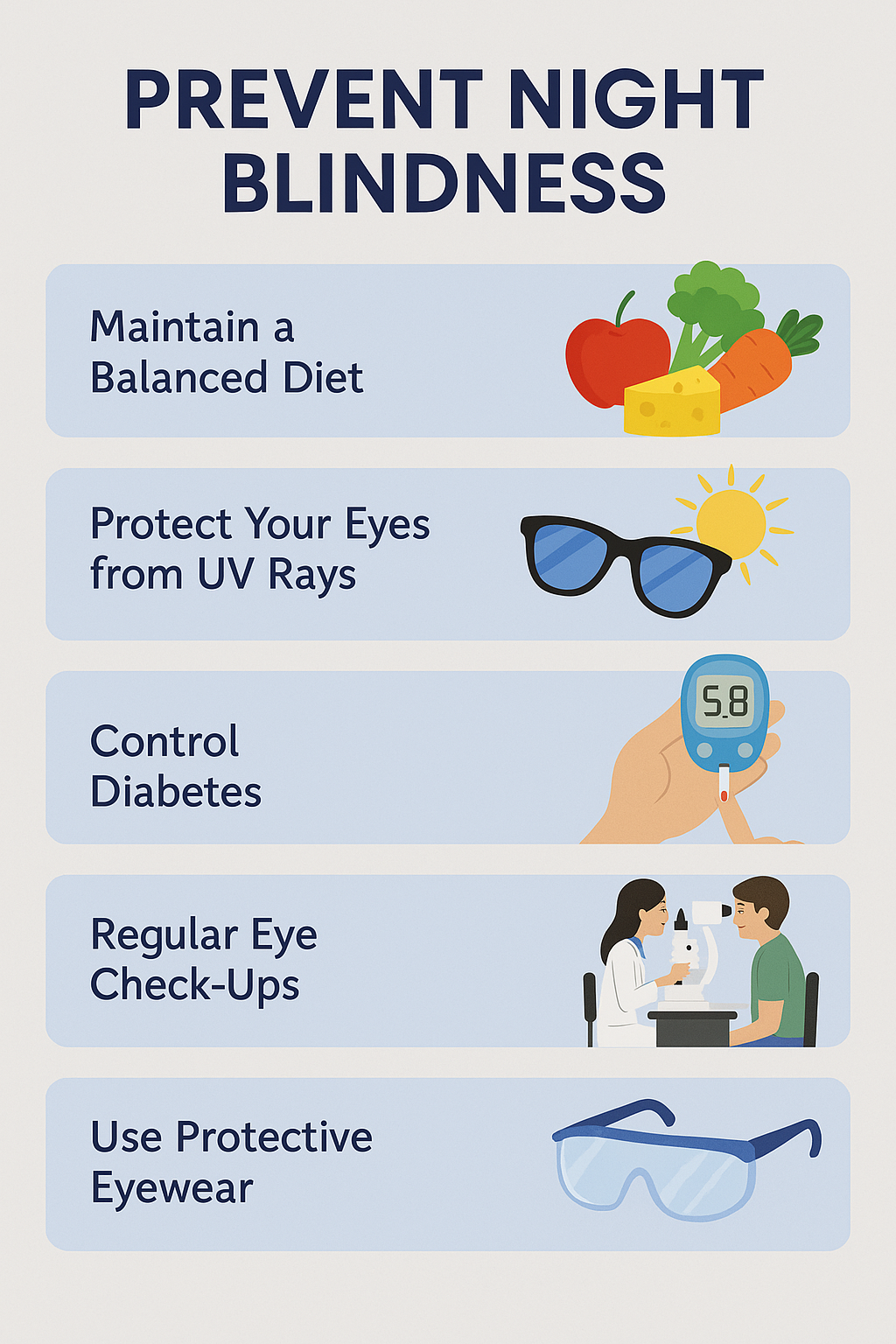
- Maintain a Balanced Diet: Consume foods rich in vitamin A, omega-3 fatty acids, and antioxidants.
- Protect Your Eyes from UV Rays: Wear sunglasses with UV protection to prevent eye damage.
- Control Diabetes: Proper diabetes management reduces the risk of diabetic retinopathy.
- Regular Eye Check-Ups: Early detection of eye conditions like cataracts and glaucoma can prevent it.
- Use Protective Eyewear: If you work in environments that expose your eyes to potential injury, use protective glasses to safeguard your vision.
Expert Eye Care at Laxmi Eye Hospital
Laxmi Eye Hospital is one of the largest chains of eye hospitals in Mumbai, renowned for its excellence in eye care for over 30 years. With a team of experienced ophthalmologists, Laxmi Eye Hospital ensures transparency in treatment and offers top-tier diagnostic and sophisticated eye care services in Panvel, Kharghar, Kamothe, and Dombivli.
Specializing in various treatments such as Cataract, LASIK, Glaucoma, Diabetic Eye Care, Cornea Clinic, Retina Treatment, and Pediatric Ophthalmology, Laxmi Eye Hospital provides comprehensive care under one roof at an affordable cost. The hospital also boasts one of the most reputed cataract surgical training programs and has been training ophthalmologists in specialty fellowships for over 25 years.
Consultation Locations:
- Laxmi Eye Clinic (Dombivli) – SS Business Park, Gharda Circle, Dombivli East, Mumbai
- Laxmi Eye Clinic (Kharghar) – Anant CHS, Plot 31, Sector 04, Kharghar, Navi Mumbai
- Laxmi Eye Hospital & Institute (Panvel) – Mulla Hamid Rd, Old Panvel, Navi Mumbai
- Laxmi Eye Institute (Kamothe) – Near ICICI Bank, Kamothe, Navi Mumbai
Frequently Asked Questions
1. Can night blindness be cured?
The possibility of a cure depends on the cause. Some cases, such as vitamin A deficiency and cataracts, can be treated, while genetic conditions like retinitis pigmentosa have no cure but can be managed.
2. How can I prevent night blindness?
A balanced diet rich in vitamin A, regular eye check-ups, and proper diabetes management can help prevent night blindness.
3. Does night blindness affect driving?
Yes, people with night blindness often struggle with driving in dim light due to poor vision and glare sensitivity.
4. Can wearing glasses help with night blindness?
If night blindness is caused by myopia or astigmatism, corrective lenses can improve vision.
5. When should I see an eye specialist for night blindness?
If you frequently struggle with low-light vision, experience difficulty adjusting to darkness, or notice worsening night vision, consult an ophthalmologist immediately.
Conclusion
It can significantly impact daily life, but with proper diagnosis and treatment, its effects can be managed or even reversed. If you experience difficulty seeing in low-light environments, consult an eye specialist to identify the cause and explore treatment options. Laxmi Eye Hospital offers expert eye care to help you maintain optimal vision. Book your consultation today to safeguard your eye health and improve your night vision.

